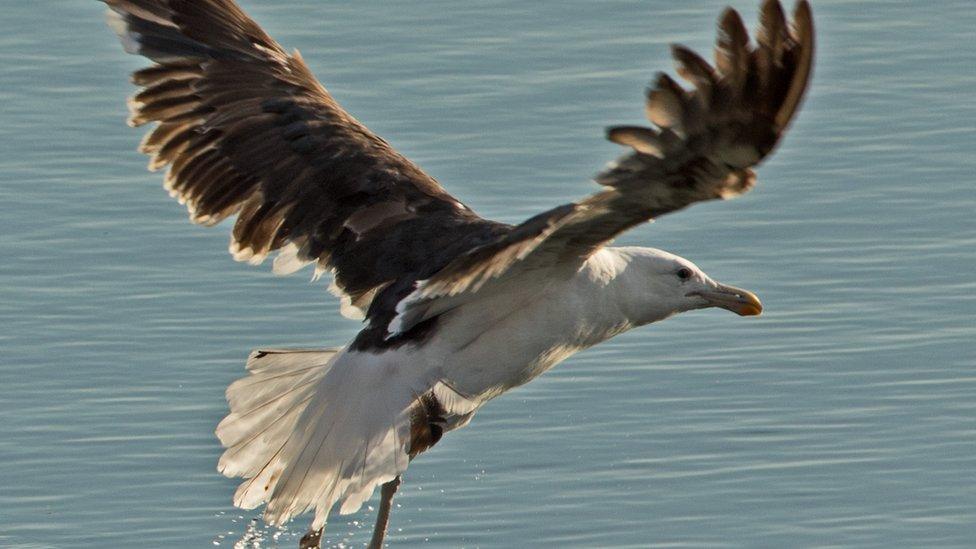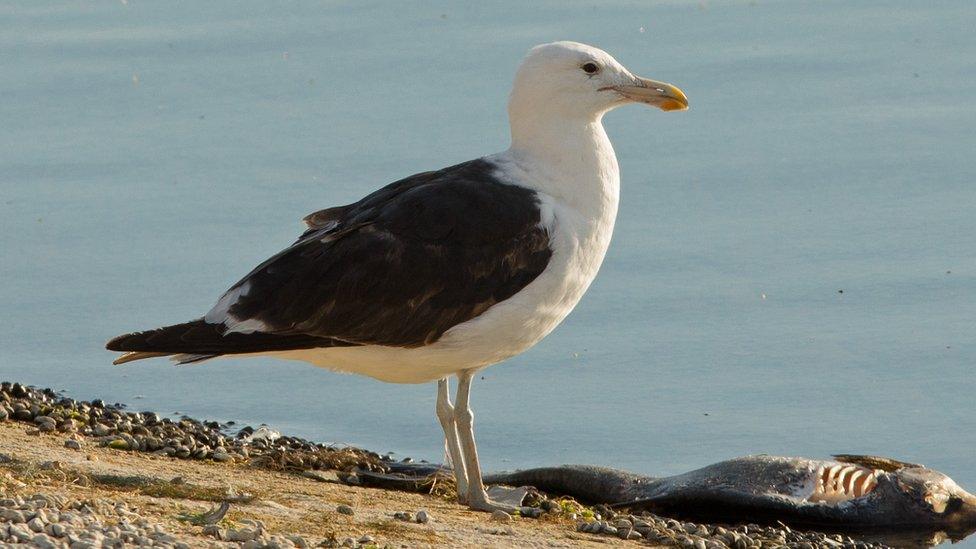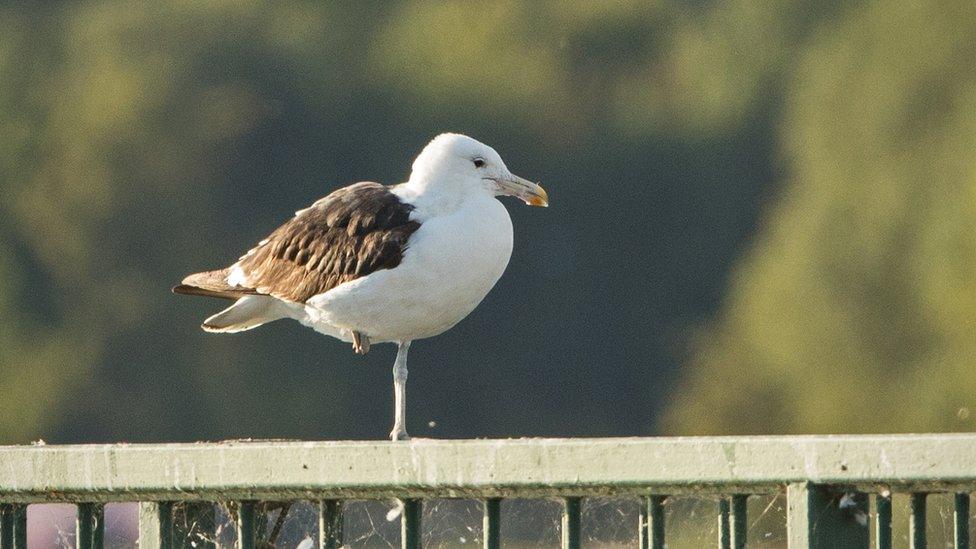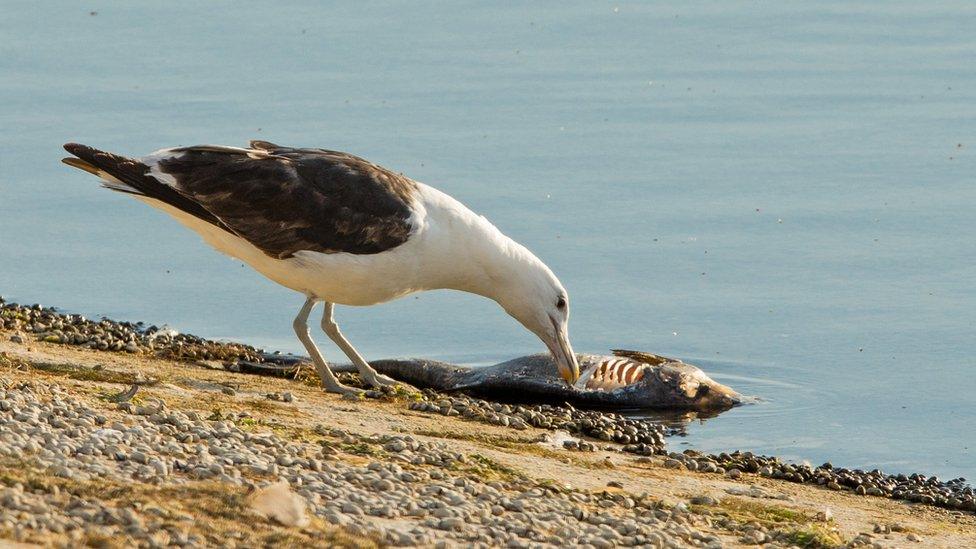Kelp gull first sighting in UK is 'extraordinary'
- Published

The kelp gull was spotted at Grafham Water in Cambridgeshire by a local birdwatcher
Birdwatchers at a reservoir have said it was "extraordinary" to see a rare gull in Britain for the first time.
The kelp gull was identified at Grafham Water near Huntingdon, Cambridgeshire, on Sunday.
The seabird is usually found throughout the southern hemisphere, but not this far into the northern hemisphere.
Gary Allport from Birdlife International said it was "amazing" to see the gull, which is normally a "coastal species".
"You do get them inland in certain places but usually only when they're breeding," he said.
"It's extraordinary really.
"We would expect it in a coastal area, not in a reservoir in Cambridgeshire."

It was believed the bird was the African subspecies vetula, known as a cape gull
Mr Allport travelled from the Midlands to Grafham Water on Tuesday to see the gull.
"There were about 40 or 50 people there," he said.
"There would certainly be thousands of people who would want to see a bird of this sort."
The gull could be identified by the blue and grey colouring on its legs, its heavier build and its very small dark eye structure, he said.
He added that it was a "phenomenal find" by a local birdwatcher, as it could be mistaken for a more common gull.
However, the 59-year-old said the species' arrival in the country had been "kind of expected".
"Over the last 10 years there have been a few recordings in western Europe and one in Paris a few years ago," he said.
"The bird is extremely rare, but it was on our radar so it was great to see it."

Paul French from the British Bird Rarities Committee said he was "confident" the bird would be accepted as a kelp gull
The British Bird Rarities Committee, one of two organisations which will verify the identification, said it was "one of the more amazing records to reach Britain".
"Its main range is Namibia and South Africa, although birds do range as far as Senegal and one or two pairs have bred in Morocco in recent years," chairman Paul French said.
He said the person who first spotted the bird would need to submit a description to the committee, which would then assess it to confirm the identification.
"We may seek external assistance on this, as large gulls are notoriously difficult to identify," he said.

Cape gulls are usually found in South Africa
If all 10 committee members agreed on the identification, the record would be passed to the British Ornithologists Union Records Committee.
"They adjudicate on all potential new species for Britain," Mr French said.
"If all the members of that committee agree with the identification as a kelp gull, and they accept that this is most likely a wild bird and has not been transported with human assistance, then they will accept this as the first record for Britain and we will both publish it as such."

Find BBC News: East of England on Facebook, external, Instagram, external and Twitter, external. If you have a story suggestion email eastofenglandnews@bbc.co.uk, external
Related topics
- Published2 September 2019
